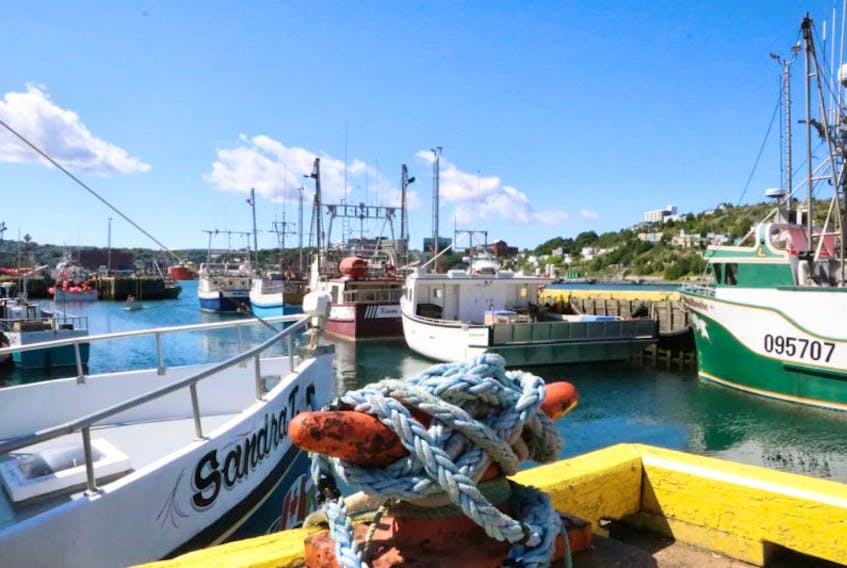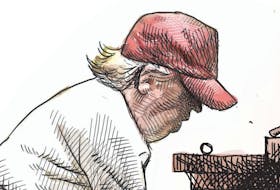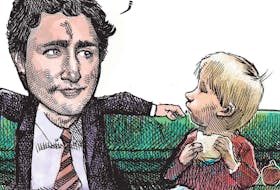Be careful what you wish for. And how you fish for it.
As the Fish Food and Allied Workers and FISH-NL continue their battle over who should represent fish harvesters, it’s worth taking a step back and looking at the key bone of contention between the two.

But not because of who ends up representing fish harvesters — no, because of what the change in one definition could mean for an industry.
FISH-NL wants an official vote to see who should represent fishers. Right now, they haven’t managed to sign up enough members to get that vote. Their argument is that the FFAW’s overall list of card-holders is bloated by people who don’t have enough attachment to truly be counted as commercial harvesters.
But there’s a reason for casting a big net over who is and is not a commercial harvester. Anyone who fishes commercially arguably benefits from the power of their union or association. As you start to add in constrictions on who constitutes a bona fide fisher, people fall on the other side of the line, sometimes for reasons beyond their own control.
The rules are spelled out in the provincial Fishing Industry Collective Bargaining Act, which says, “‘fisher’ means a self-employed commercial fisher including a person receiving a share of the voyage or a person agreeing to accept in payment for his or her services a share of the profits of a fishing venture, with or without other remuneration engaged in fishing for gain, other than for sport, in tidal waters including fishing for anadromous fish while in those waters and includes all other commercial fishers not falling within the definition of employee in the Labour Relations Act.”
So, the bottom line is that if you make money from commercial fishing, you’re a fisher.
Now, you can understand why someone who spends a lot of time on the water would feel they had more attachment to the industry than someone who doesn’t.
FISH-NL is apparently arguing that the definition of what constitutes a fisher should depend on a much greater attachment to the fishery — that there should be a cut-off below which you don’t count as a harvester. I’ve heard suggestions that a “real” harvester should make 70 per cent of their income from fishing, something that would rule out successful fishers who also, say, spent their winters as pipefitters in Alberta instead of collecting EI. But does it really make you less of a fisher if you are willing to take on extra work in the off season to benefit your family?
(It reminds me a bit of being a television reporter and being sent to Petty Harbour to get the inevitable sound bite from a fisherman on fishing policy. The fishermen I found first, playing cards, said, “you don’t want us, you want the TEE-VEE fishermen.” Fishers have been making their own decisions about what “real” fishers are for decades.)
If some kind of new, less-broad definition is acceptable to fishers and their union representation, what’s to stop that same definition from being the gold standard for the elephant in the fisheries room — the federal government?
But leave the union fight to the unions for now, and think about the other ramifications of having fishers and the Labour Relations Board accept a different definition of what it means to be a commercial fisher.
If some kind of new, less-broad definition is acceptable to fishers and their union representation, what’s to stop that same definition from being the gold standard for the elephant in the fisheries room — the federal government?
The government would probably quietly love a tighter definition, especially one suggested by an association representing commercial harvesters.
Fewer fishers means less hassle, fewer requirements for bailouts if there’s a stock collapse, lesser need to maintain smaller harbours and, arguably, even things like the value of a fishing licence (often counted on as retirement money) could drop as supply spikes over demand.
Would the federal government be wrong to argue that anyone who doesn’t satisfy the new standard shouldn’t even be able to hold a licence?
Make the fishery a smaller club, and you have less clout. And maybe there would be people who would be fine with that — because a smaller, more exclusive fishery might well make more money for the few, transferring the benefits of a common resource into a smaller pool of eligible harvesters.
But there are clear pitfalls in breaking fishers into distinct classes, the legitimate and the illegitimate. When you build a fence, you fence things in and you fence things out. And once you’ve agreed to limit the field, once you’ve set a bar, it’s easier for that bar to move.
And you shouldn’t be surprised to wake up one morning and find yourself on the wrong side of that fence, looking in.
Russell Wangersky’s column appears in 39 SaltWire newspapers and websites in Atlantic Canada. He can be reached at [email protected] — Twitter: @wangersky.









